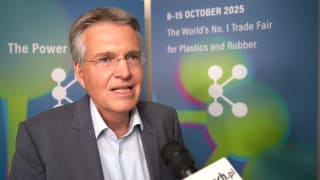 Munich-based chemical company Wacker is expanding its product range with a new liquid silicone rubber for the production of automotive gaskets. Molded parts made from the new silicone are resistant to heat and coolant and exhibit low compression set even under permanent stress. Car radiators and cooling-system components can thus be reliably sealed. Elastosil RT 728, as the new silicone grade is called, can be injection molded or mechanically dispensed straight onto the part to be sealed.
Munich-based chemical company Wacker is expanding its product range with a new liquid silicone rubber for the production of automotive gaskets. Molded parts made from the new silicone are resistant to heat and coolant and exhibit low compression set even under permanent stress. Car radiators and cooling-system components can thus be reliably sealed. Elastosil RT 728, as the new silicone grade is called, can be injection molded or mechanically dispensed straight onto the part to be sealed.Header tank of a car radiator with silicone gasket made of Elastosil RT 728 (light-colored bead). The new liquid silicone rubber, which is resistant to coolant, has been specially developed for the automotive industry. It is suitable for injection molding and for cured-in-place gaskets applied by dispensing equipment.
Elastosil RT 728 has been chiefly developed for the production of fluid- and heat-resistant gaskets for the automotive industry. The liquid silicone is characterized by high coolant resistance. Gaskets made from Elastosil RT 728 exhibit no more than 30 percent compression set after 1000 hours in coolant at a temperature of 105°C. After 1000 hours at 125°C, the permanent deformation is still less than 65 percent as soon as the stress is removed. The elastomer's high resilience delivers constant contact pressure and optimum leaktightness in the seal groove. Moreover, even long-term stress has very little effect on the overall property profile of Elastosil RT 728. Vulcanizates of the new liquid silicone meet delivery specifications of leading car manufacturers concerning gaskets for use in engine cooling systems.
Elastosil RT 728 supports cost-efficient series production of parts by injection molding. However, the liquid silicone can also be applied by dispensing equipment straight onto the part to be sealed – automotive subcontractors use this method to produce two-component parts. Elastosil RT 728 meets all the key requirements of this application. By virtue of its shear-thinning properties, it can be applied by dispensing equipment and is self-adhesive. Automotive suppliers, such as Stuttgart-based Mahle, uses the product to make radiator components.



